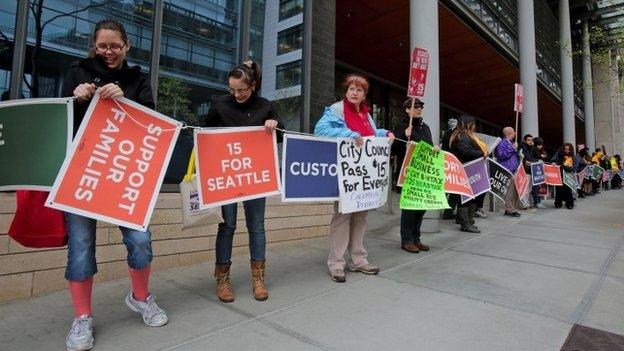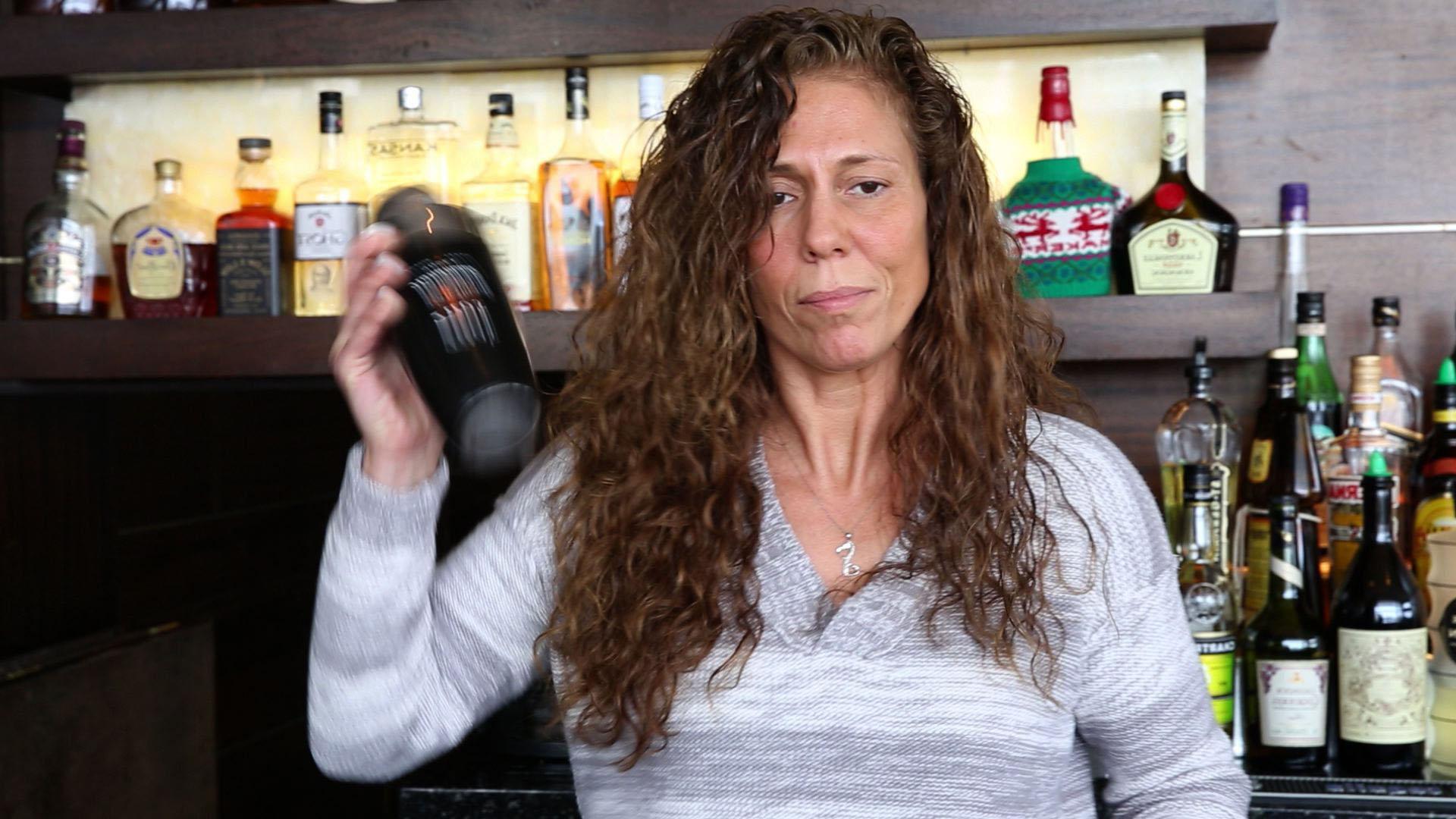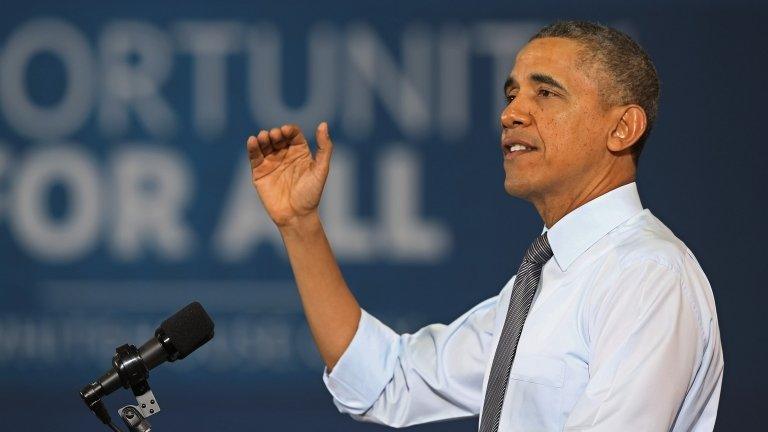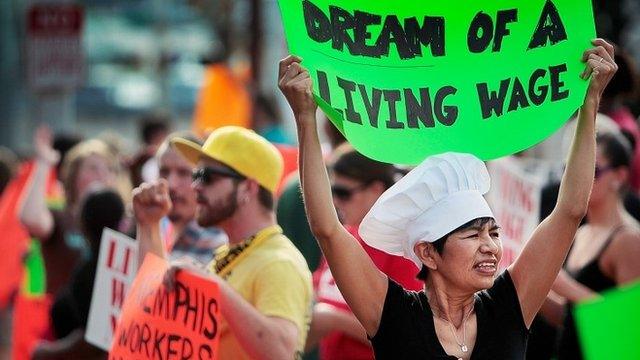Senate Republicans block US minimum wage rise
- Published

Seattle, Washington, is weighing raising the minimum wage to $15 an hour, one of many state and local governments acting in lieu of Congress
US Senate Republicans have blocked a Democratic-backed rise in the minimum wage, as the two parties stake out positions ahead of November's election.
The bill to raise the national minimum to $10.10 (£5.99) from $7.25 failed in a largely party-line vote of 54-42.
Republicans say it would be unaffordable for employers, while Democrats say Republicans are taking sides against poor workers.
In recent months several states have passed their own minimum wage rises.
On Wednesday, the bill failed to attain the 60 votes needed to proceed to final passage.
Tennessee Senator Bob Corker was the only Republican to vote yes, while Democratic Majority Leader Harry Reid switched his vote to "no" as it became clear the bill would fail, a procedural move that allows him to call another vote on the measure.
'Give America a raise'
The national wage rise failed a day after Hawaii's state legislature raised the state's minimum wage to $10.10, a level recommended by the Obama administration.
Hawaii joined a number of states and municipalities that have recently approved rises in their base hourly wages. Earlier in April, Minnesota went from having one of the nation's lowest minimum wages to the highest.
President Barack Obama criticised the vote in a White House press conference on Wednesday afternoon.
"By preventing even a vote on this bill, they prevented a raise for 28 million hardworking Americans," he said. "They said no to helping millions work their way out of poverty. And keep in mind this bill would've done so without any new taxes or spending or bureaucracy."
Mr Obama added a majority of Americans support such a rise.
Why tipped workers aren't part of the minimum wage conversation
After the vote, Democratic leaders attacked Republicans for blocking a bill they said would bring a pay rise for millions of Americans.
Mr Reid accused Republicans of "fighting for billionaires" while saying Democrats were fighting "for people who are struggling to make a living".
"It's very simple to us," New York Senator Chuck Schumer said. "An American who works 40 hours a week deserves a fair shot of getting out of poverty. At the present minimum wage level you can't."
Republicans in the Senate and the House maintain the proposal is too expensive for businesses and would result in job cuts.
"Washington Democrats' true focus these days seems to be making the far left happy, not helping the middle class," Senate Minority Leader Mitch McConnell said ahead of the vote.
The president's Democratic Party is facing a potential loss of control of the Senate in November, when one-third of the body's 100 senators are up for re-election.
In the upcoming campaign, Democrats hope to use the minimum wage fight to portray themselves as the guardians of working people and the middle class and the Republicans as the party of the wealthy, analysts say.
Industry opposition
The Senate bill, sponsored by Iowa Democrat Tom Harkin, would increase the federal minimum wage to $10.10 over the course of 30 months and then provide automatic increases for inflation.
Opponents of the rise cite a study by the non-partisan Congressional Budget Office estimating the law would result in the loss of about 500,000 jobs.
But the same study, external also anticipated as many as 16 million poor workers would see a substantial pay rise.
The bill is opposed by a host of industry groups, including the National Council of Chain Restaurants and the International Franchise Association, and well-funded conservative political organisations.
Congress has raised the minimum wage about once every decade but has not previously connected it to inflation. The wage's purchasing power has dropped significantly with inflation from its peak in 1968.
- Published23 April 2014

- Published29 January 2014

- Published5 December 2013
